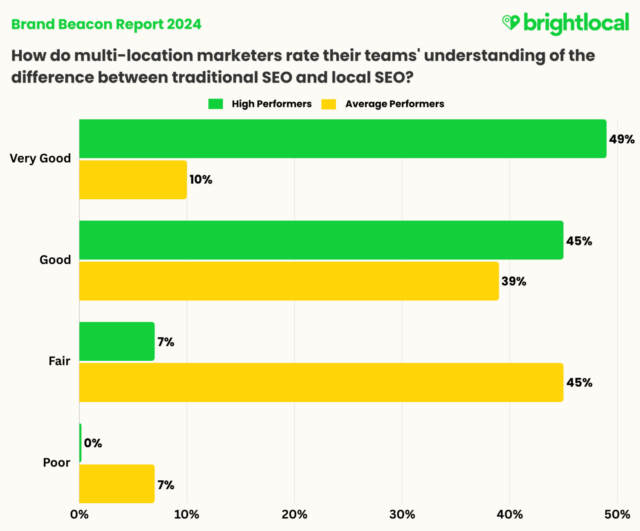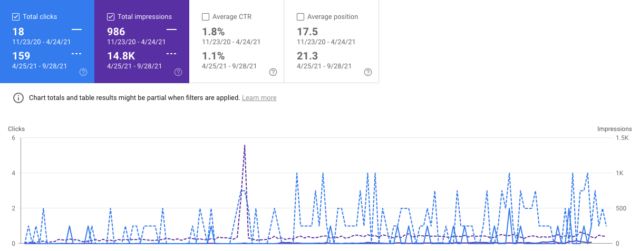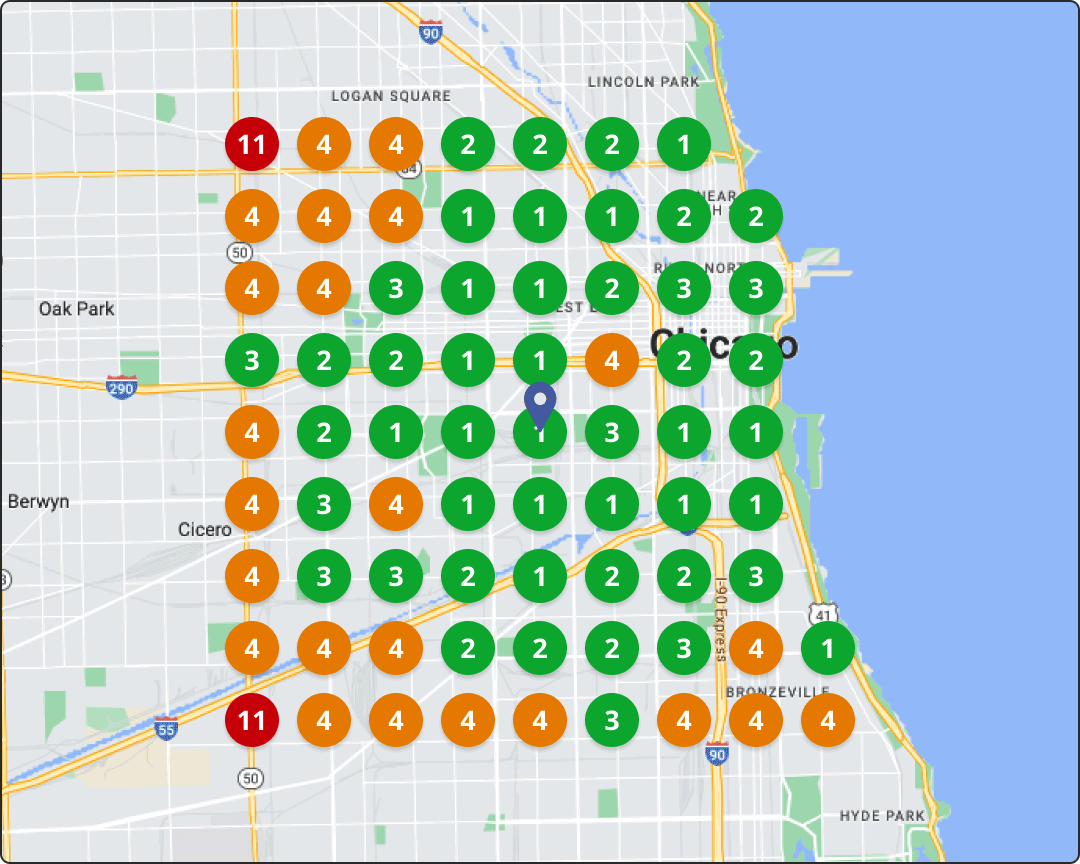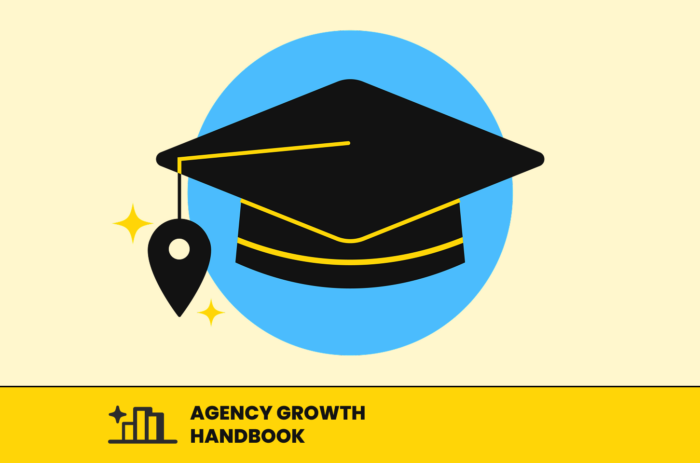This article is from our Agency Growth Handbook—a collection of guides created to help local SEO agencies grow and succeed. It is chapter one of ‘Part 3: Retention & Growth’.
Helping clients understand the value of local SEO is key to building trust, driving growth, and ensuring long-term client retention. It can be tempting to jump straight in with a new client and start delivering results, but without the education step, your hard work could go unnoticed. While we live and breathe local search, many clients may not—so it’s essential to break things down in a way that resonates with them.
This 11-step approach will help you educate your clients effectively, tailoring your strategy to their knowledge level, learning style, and business goals. By ensuring they understand not just what local SEO is but why it matters, you’ll strengthen client relationships, improve retention, and set the stage for sustained success.
Let’s dive in.
Did you know? According to BrightLocal’s Brand Beacon Report 2024, 93% of high-performing agencies have a deep understanding of the difference between traditional SEO and local SEO. This knowledge directly correlates with client satisfaction and retention.

Step 1: Assess Your Client’s Knowledge Level
First things first, you need to assess your client’s knowledge level. They’ve reached out to you for a reason, so we can speculate that they’ve got some idea about local SEO, but it’s important to get an understanding of where they’re really at so you can begin to fill in the gaps.
Do they know what Google Business Profile (GBP) is? Have they ever optimized for local search before? You could schedule a meeting to find out or send them a brief questionnaire or survey that could help you gauge their understanding. Just remember, it’s worth taking surveys like this with a pinch of salt, as some clients won’t necessarily want to admit where their knowledge gaps are.
Don’t get too bogged down in the nitty gritty if you opt for the survey route. Ask broad questions that you can then use their answers to tailor the education approach.
Here are some more broad questions you could ask to assess your client’s understanding of local SEO:
- Do you know what a local search is?
- Are you familiar with Google Business Profile and why it matters?
- How do you currently attract local customers online?
- Have you ever searched for your own business on Google? What did you find?
- What platforms do you use to promote your business online?
- Do you encourage customer reviews? If so, where do you ask for them?
- How do you measure whether your online marketing efforts are working?
- Have you made any updates to your business information on Google, Yelp, or other directories?
- What’s your biggest challenge in getting found online by local customers?
These questions help gauge their baseline knowledge without making them feel like they’re being tested. Plus, they open the door for natural conversations about local SEO.
Beginner-Friendly Guides
If your clients are new to local SEO, these guides break down the basics in an easy-to-understand way.
-
BrightLocal’s Local SEO Handbook – A fantastic collection of guides covering all aspects of local SEO, from citations to Google Business Profile (GBP) optimization.
-
Ahref’s Local SEO: The Complete Guide – A well-structured guide explaining local SEO fundamentals, complete with visuals and examples.
- Free Course: A Beginner’s Guide to Local SEO – A simple course on the basics of local SEO on BrightLocal Academy.
Step 2: Understand Their Learning Style
Everyone has a preferred learning style. Some might prefer detailed documents, while others may learn better through interactive videos. Understanding your client’s learning style is key to providing effective education.
Is your client pragmatic, matter-of-fact, logical, or creative? Are they time-poor, under-resourced, or ultra-involved? All of these things will play a part in how best to communicate with them.
Time-poor clients might not have time to sit on a call for an hour while you go through the process. Can you fire over a doc for them to peruse in their own time instead?
Creative clients might prefer to get involved in a collaborative discussion on the matter, while pragmatic people want to do.
Here are some common learning styles and how to approach them:
- Time-poor Clients: Send them short, actionable videos or summary documents that they can review at their convenience.
- Creative Clients: Opt for collaborative discussions or workshops where you can brainstorm and explore ideas together.
- Logical Clients: Provide data-backed explanations and use tools like Google’s local search results or metrics to demonstrate SEO impact.
The best way to identify a client’s learning style is to simply ask! Include a quick question in your initial survey or have a conversation about how they prefer to learn.
Educational Resources For Clients Who Learn Visually:
- BrightLocal Academy – Free video courses covering everything from Google Business Profile (GBP) optimization to local link building.
- Ahrefs YouTube Channel – While Ahrefs focuses on general SEO, they have some great videos on local SEO topics.
- BrightLocal Webinars – Regularly updated webinars featuring industry experts discussing the latest trends in local SEO.
Educational Resources For Clients Who Prefer Listening:
- The Local SEO Tactics Podcast – Covers practical local SEO strategies in an easy-to-digest format.
- BrightLocal Webinars – (Also great for listeners!) Featuring expert discussions on the latest local SEO trends.
Step 3: Do Your Research
You’ll need to try to explain and educate on local SEO as simply as possible, and we all know that you need to understand something inside and out in order to communicate it in the best possible way.
So, before you begin, make sure you’re informed about everything you ought to be and are aware of any recent changes.
Doing research also goes beyond just the realm of local SEO. Ensure you’re familiar with your client’s business so you can tailor your communications to them. Personalization is a priceless tool that can help things feel more relevant and memorable to people, and you won’t be able to use it without knowing the client’s business properly. If you need to, you can direct them to guides on the basics, like our own piece in the learning hub called ‘What is Local SEO?’.
Step 4: Use Multiple Educational Formats
Don’t rely on just one method of education. Offering a mix of content ensures you cater to different learning styles and keeps things memorable and engaging.
- Video Content: Video is one of the most effective ways to simplify complex topics. BrightLocal’s How to Create, Optimize, and Manage Google Business Profiles video course is a great resource for introducing this crucial local SEO tool. You can also reference industry experts like Greg Gifford, whose ‘What is Local SEO?’ video does a great job of breaking things down.
- Infographics & Visual Aids: Some clients learn better visually. Use graphics to show how proximity affects local search rankings or how businesses can improve their GBP.
- Real-World Examples: Take your client on a “local SEO tour.” Get in your car with your client and drive around the block. Show them how their maps rankings change as your proximity to the business does. For some people, they really do need to see it to believe it.
- FOMO: Fear of missing out (FOMO) can be a powerful tool when used correctly, and when it comes to educating clients on the benefits of local SEO, it can be even more helpful. That’s why it’s important to have a grasp on your client’s competitors and how they’re performing, too.
Find the Perfect Course for You!
Explore BrightLocal’s curated course collections, designed to match your experience level and goals. Whether you’re a beginner, an advanced learner, part of an agency, or managing multiple locations, we have a tailored learning path just for you!
Step 5: Use Case Studies to Emphasize Impact
Incorporate expert opinions and real-world case studies to back up your claims. For example, this case study from Prime Web Design illustrates how they have created a brand new website for a client that:
- Google indexed just three days after launching
- Started getting search impressions in seven days
- Received the first visitor in nine days
- Continues to see increases in traffic month over month
- Pre-qualifies traffic, regardless of the source, into high-quality leads
By sharing insights like these, you can reinforce your educational efforts with the authority of industry professionals.

Step 6: Leverage Industry Experts
Staying updated with local SEO trends is crucial, and following trusted industry experts can help clients stay ahead. Here are a few key voices worth following:
- BrightLocal’s Newsletter – Stay updated with the latest local SEO insights, guides, and industry news. Subscribe here.
- Near Media – A must-read for local search news and analysis from Mike Blumenthal, Greg Sterling, and David Mihm. Subscribe here.
- Marie Haynes – Expert on Google algorithm updates and SEO insights. Follow her on X or subscribe to her newsletter.
- Sterling Sky Newsletter – Get expert insights from Joy Hawkins and her team. Subscribe here.
- Whitespark – Great for local search insights and tools. Follow Darren Shaw on X or subscribe to the newsletter.
- Kick Point’s Newsletter – A valuable resource for digital marketing and local SEO. Subscribe here.
- Barry Schwartz & Search Engine Roundtable Newsletter – Stay on top of SEO industry updates and Google algorithm changes. Subscribe here.
- BrightLocal’s “Brilliant Local SEOs” List on Bluesky – Follow top industry experts in one place. Check it out here.
- Other Experts to Follow on X:
- Claudia Tomina – Focuses on local SEO for restaurants.
- Andy Simpson – Specializes in legal SEO.
- Ben Fisher – Google Business Profile expert.
Step 7: Show the Impact with Data
Educating clients on local SEO is much easier when you can show them the impact through data. For instance, 96% of consumers are open to writing a review of your business (according to BrightLocal’s Local Consumer Review Survey 2025). These statistics are powerful when explaining the importance of gathering and responding to reviews.
Industry Reports & Statistics (Great for Skeptical Clients)
- BrightLocal’s Local Consumer Review Survey – Updated annually, this survey reveals how customers interact with local businesses online.
- Whitespark’s 2024 Local Ranking Factors – A detailed breakdown of what impacts local search rankings the most.
- Google’s Consumer Insights – Google’s research on search trends and online behavior.
- Local Business Discovery and Trust Report 2023 – Consumer research highlighting the importance of correct and consistent business information for building trust with potential customers.
- The Brand Beacon Report – An industry report, surveying 200 marketing leaders, that finds correlations between understanding local SEO and implementing dedicated local marketing strategies with overall higher marketing performance.
Tools to Show Clients Their Local SEO Performance
Clients often grasp concepts better when they see real-world data. Use these tools to demonstrate rankings and more.
- BrightLocal’s Local Search Grid– Allows clients to see how their business ranks in different locations.
- Google Business Profile Insights – Shows how customers find and interact with a business listing.

Step 8: Create Simple, Relatable Analogies
Using analogies or metaphors can help clients understand complex SEO concepts more easily. For example:
- Citations Are Like Poker Chips: Just like poker chips are essential to playing the game, citations (online mentions of your business) are critical for local SEO. You need them on the table to stay competitive.
- Link Building Is Like Networking: Building backlinks is like making valuable connections at industry events—each link boosts credibility and visibility.
Painting a picture for your client can often be the best way to get your point across, especially for visual thinkers. Of course, to make these metaphors more relatable, tailor them to your client’s industry or interests.
Are they a big sports fan? A big 80s film geek? Use that to your advantage to make the message relevant and relatable, as it’s far more likely to stay in the client’s mind this way.
Step 9: Keep Clients Involved and Informed
Communication is key. Regularly update your clients on their progress, what changes you’ve made, and why those changes matter. This keeps the client informed and reinforces the value you’re providing. Joy Hawkins from Sterling Sky recommends including a “What’s New with Google” section in monthly reports to keep clients aware of updates.
We do like to educate our clients by putting a page on their monthly report that shows what’s new with Google that month. That way they can better understand why SEO is an ongoing service and not a one-time thing. We also like to ‘over-communicate’ (if there is such a thing) with our clients to make sure they are fully aware of what we’re working on. Then we include a full list of all the work we did on our monthly reports and try to highlight why it matters.
Joy Hawkins, Sterling Sky
Additionally, consider sending curated reading lists or subscribing clients to industry newsletters, such as BrightLocal’s newsletter. This keeps them engaged with local SEO even outside of your direct communications and ensures they stay updated on the latest trends, insights, and best practices.
Step 10: Speak Their Language & Shift Their Perspective
For those of us in the industry, the benefits of local SEO seem obvious—but to your clients, they might not be. The key is to communicate in a way that resonates with them. Avoid jargon and focus on real-world benefits. Instead of saying, “Optimizing your GBP can boost your local map rankings,” say, “Filling out your Google Business Profile properly makes it easier for local customers to find you.”
A great way to drive this home is to put your client in their customer’s shoes. Blake Denman of RicketyRoo suggests having them search for their own business:
If I’m talking to someone and they don’t know the value of local SEO, I ask them to do a search for their business. How does their GMB look? How many reviews do they have? Does their website communicate their values? If they rank poorly, how much more business could they get if they were ranking for their top keywords? These questions help open up a deeper conversation about what a local SEO company can do for a business that has been staunchly against local SEO or never felt a need for it.
Blake Denman, RickeyRoo
You can extend this to their website, too. Ask them to visit it as if they were a new customer. How easy is it to navigate? Does it load quickly? Does it answer the questions a searcher would be looking for? And even on a basic level, is the business’s name, address, and phone number easy to locate?
Getting a client to see things the way their customer would help them better understand what value a local SEO agency brings and what opportunities they might be missing without one.
Step 11: Address Questions and Provide Clear FAQs
As you educate your clients, encourage them to ask questions. Address any confusion immediately and consider creating a dedicated FAQ page (or in a shareable document if you prefer) where you can answer common client queries. This is an excellent resource for clients to refer back to if they forget something discussed in a meeting. You could even record a quick-fire FAQ video to ensure visual learning types are still being catered to. Here, you can include a gif of map rankings changing as proximity changes (to replace the old ‘driving the car around the block’ trick) and insert photos to demonstrate more complex concepts. It’s also worth including screenshots so clients can get familiar with things like GBP and citation sites.
It’s worth remembering, though, that this should be considered a bonus rather than a replacement for one-to-one chats. It will still be important to sit down and speak with your client one-on-one, but this will save time and help to fill in the gaps that bit quicker.
Dos and Dont’s
Phew! That was a lot of information. Here’s a list of the basic dos and don’ts to refer back to.
- Do work with your client’s knowledge level and learning/communication style
- Do use simple language
- Do share different types of resources based on learning style (videos, blogs, podcasts)
- Do show your client in real-time the impact of local SEO
- Do create engaging, relevant metaphors to explain difficult concepts
- Do explain value to your client in a way that resonates with them
- Do communicate frequently and provide regular check-ins
- Do create an engaging FAQs doc to share
- Don’t get bogged down with jargon
- Don’t try to show off
- Don’t use education as an attempt to justify your prices to clients
- Don’t discourage questions
- Don’t rely on known marketing concepts when speaking to beginners
- Don’t only use one format or medium to educate
Final Thoughts
Client education is ongoing, and the right resources can make all the difference. Here’s how to integrate them effectively:
- Match the resource to their learning style – If they prefer videos, send them a course. If they like reading, share a guide or report.
- Use reports to back up your strategies – Clients who need data-driven proof will appreciate insights from industry reports.
- Give hands-on experience – Show them how their business ranks using BrightLocal’s rank tracker or Google Business Profile Insights.
- Encourage self-education – Provide a short list of resources for them to explore at their own pace.
By educating your clients on the nuances of local SEO, you lay the foundation for a stronger relationship and greater success. When clients understand the value you bring, it will become easier to implement strategies and drive results.

